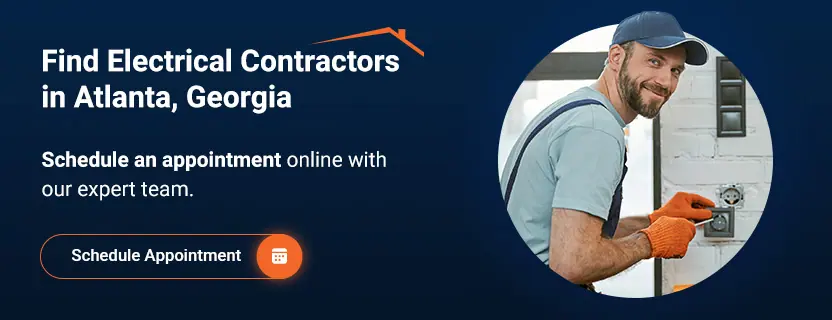Many homebuyers appreciate the architectural beauty of historic homes, combined with the decades of history they contain. Despite their outward appearance, these older homes have a few unique challenges, including outdated electrical components. These issues may lead to safety concerns or make it hard to use light switches or outlets in your home.
Atlanta, Georgia, has many historic neighborhoods like Inman Park, Ansley Park and Druid Hills. These locations have houses built between the 1830s and 1960s. As a resident of Atlanta or the surrounding areas, you may wonder about common electrical problems you may face when purchasing these older homes.
Advancements in technology have brought improvements in electrical systems, including safety and more consistent power. Older homes may need to adapt to the trends since they were built before these advancements. Whether you recently bought an older home or want to improve a home you’ve owned for a while, here are some common Atlanta electrical problems to consider.
Historic homes often have issues with grounding, including in their electrical outlets. Older, two-prong outlets lack (Two-Wire Non-Grounded Circuit) the means to confine stray currents safely. In some older homes, owners replace the two-pronged outlet with a three-pronged one. This fix may appear safe but is very dangerous unless the three-pronged outlets are connected to a ground fault circuit interrupter (GFCI) for proper grounding.
Some older homes also supplemented the grounded electrical systems with copper wires connected to the galvanized steel water line. When the water line ages, plumbers often replace it with PVC, which can’t ground the electricity.
We use power for much more today than homeowners did 100 or even 50 years ago. More appliances and electrical devices lead to higher demands for electricity. Older homes might need more capacity to handle the increase in power. Homes with insufficient power might blow fuses, leading to hazards.
Another area where old homes have electrical problems is their electrical outlets. They may not have enough outlets to fit your current power requirements, leading you to use extension cords or power strips, which have a limited load capacity and increase exposure to physical abuse of the extension cord that should be for temporary use only, not a permanent fix.
If you notice lights flickering or dimming, this may be a sign your electrical wiring needs work. After several decades of exposure to the elements, wiring insulation wears down. Other factors like rodents in the walls and attics can also expose the wiring insulation and make them more likely to cause catastrophic events.
Homes built in the 1940s or earlier may have knob and tube wiring. This system consists of insulated knobs and tubes that run along the walls and attics of the homes wood structure carrying power. These systems are often inefficient and dangerous, especially when old wiring insulation gets exposed.
Some historic homes have dead outlets that no longer supply power. While broken electrical outlets are annoying, they may also be dangerous. An outlet often stops working when it gets a break in the wiring. Frayed or loose wires create areas where the electrical current could cause sparks.
Another electrical problem in historic houses is previous DIYs. Homeowners may notice issues like two-pronged outlets or flickering lights and attempt to repair the problem themselves. Without professional experience, they may make repairs that mask issues without fixing them. These issues create further electrical hazards in older homes.
The electrical system in a home is often hidden behind walls and sealed attic spaces, making it hard to identify issues that should be fixed or components that need replacement. Here are a few signs to look out for that could indicate an electrical problem:
Strada Electric, Security, Air Conditioning & Heating has a team of qualified electricians ready to meet customers’ electrical needs in older homes. Our electrical contractors in Atlanta, Georgia, and surrounding areas can provide electrical inspections to discover problems or upgrade historic homes. Schedule an appointment online with our expert team.
